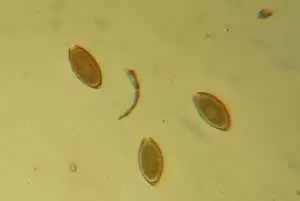Celiac.com 12/21/2012 - Over the past several years, researchers have made substantial progress in understanding the causes of autism, which now afflicts about 1 in 88 children. However, very little news of this progress seems to have spread into popular consciousness, much of which continues to focus on the possible role of vaccines.
 Recent discoveries indicates that one-third or more cases of autism look to be a kind of inflammatory disease, which begins well before birth.
Recent discoveries indicates that one-third or more cases of autism look to be a kind of inflammatory disease, which begins well before birth.
Celiac.com Sponsor (A12):
In the August 25th issue of the New York Times, Moises Velasquez-Manhoff has very interesting article in which he discusses the widening view among researchers that autism is, in fact, an inflammatory disease. The article is long and comprehensive, and cites numerous studies, findings and experiments.
Inflammation is the body's natural response to certain kinds of threats. In a normal body, the immune system uses inflammation in a very precise, targeted way, before returning to a normal state.
In autistic individuals, inflammatory signals become the dominant condition, and there is no balancing anti-inflammatory response. A state of chronic inflammation becomes normal. And the more skewed toward inflammation, the more acute the autistic symptoms.
This inflammatory deregulation adversely impacts the brains of autistic individuals. Velasquez-Manhoff also cites a number of studies that trace these inflammatory effects back to the inflammatory responses of the mother during pregnancy.
Among the studies cited in the article is a population-wide study from Denmark spanning two decades of births, which indicates that infection during pregnancy increases the risk of autism in the child. The study found that hospitalization for a viral infection, like the flu, during the first trimester of pregnancy triples the odds of autism. Bacterial infection, including of the urinary tract, during the second trimester increases chances by 40 percent.
Another large Danish study, which included nearly 700,000 births over a decade, found that a mother’s rheumatoid arthritis, a degenerative disease of the joints, elevated a child’s risk of autism by 80 percent. Rates of autism in children of mothers with celiac disease were 350 percent higher than normal. Genetic studies had similar findings. Variations in genes associated with regulating the immune system also increase the risk of autism, especially when they occur in the mother.
A mother’s diagnosis of asthma or allergies during the second trimester of pregnancy increases her child’s risk of autism. So does metabolic syndrome, a disorder associated with insulin resistance, obesity and, crucially, low-grade inflammation.
Yet, viral and bacterials infections themselves do not seem the cause of the autism epidemic. The epidemiology doesn’t support that conclusion.
A far more likely culprit is maternal immune dysregulation. Basically, the mother’s attempt to repel invaders, her inflammatory response, seems to be at fault. Research by Paul Patterson, an expert in neuroimmunity at Caltech, supports this idea. In his research, he introduces inflammation in pregnant mice artificially, without a live infection. This causes behavioral problems in the young. In this model, autism results from collateral damage. It’s an unintended consequence of self-defense during pregnancy.
Since infantile autism was first described by Leo Kanner in 1943, diagnoses have risen tenfold. During that same period, viral and bacterial infections generally declined. However, overall rates of inflammatory diseases have risen sharply since then.
As a group, these diseases include asthma, now estimated to affect 1 in 10 children, rates that have at least doubled since 1980, along with autoimmune disorders, which now afflict 1 in 20.
Recently, William Parker at Duke University has chimed in. Some years back, he began comparing wild sewer rats with clean lab rats. The bodies of wild rats tightly controlled inflammation, but those of the lab rats did not. Parker found that the bodies of the wild rats contained high levels of parasites. Parasites are noted for limiting inflammation.
One lesson from these rodent experiments is that fixing the maternal dysregulation will most likely prevent autism. That theory is supported by Swiss researchers, who created a lineage of mice with a genetically reinforced anti-inflammatory signal. They then inflamed the pregnant mice. The babies emerged fine, with no behavioral problems. This suggests that if inflammation is controlled during pregnancy, it won’t interfere with fetal brain development.
Interestingly, asthma researchers are coming to similar conclusions: preventing inflammation in pregnant women will likely prevent asthma.
Dr. Parker has introduced a more aggressive approach. He suggests that by using specially developed worms to restore “domesticated” parasites doctors can correct immune dysregulation.
To determine if this is feasible, a trial is under way at the Montefiore Medical Center and the Albert Einstein College of Medicine. The trial is using a medicalized parasite called Trichuris suis, known as a whipworm, to treat autistic adults.
The whipworm is native to pigs, and was first used medically to treat inflammatory bowel disease. It has shown anecdotal benefit in autistic children.
The article suggests that the future of treating immune dysregulation, and thus preventing diseases like autism and asthma, may lie in reintroducing parasites into the human body. Stay tuned for more updates on this truly fascinating science.
Read the full article by Moises Velasquez-Manhoff in the Open Original Shared Link.





Recommended Comments